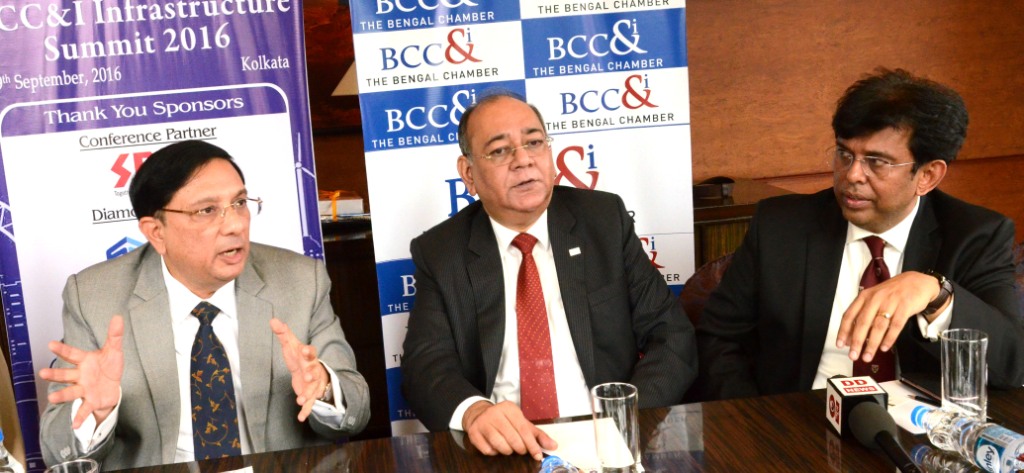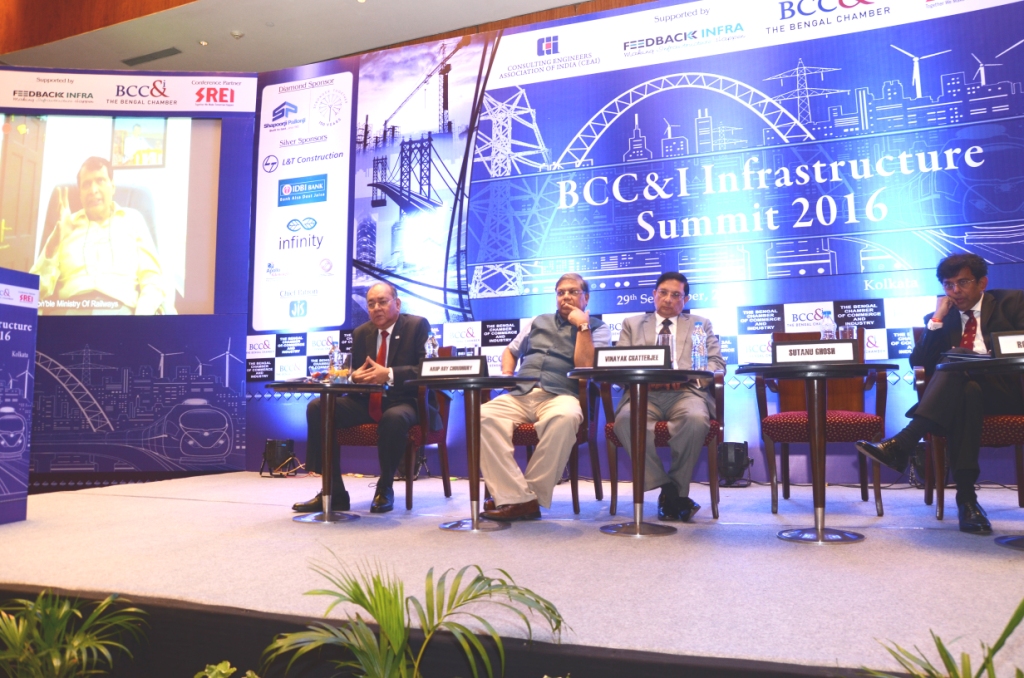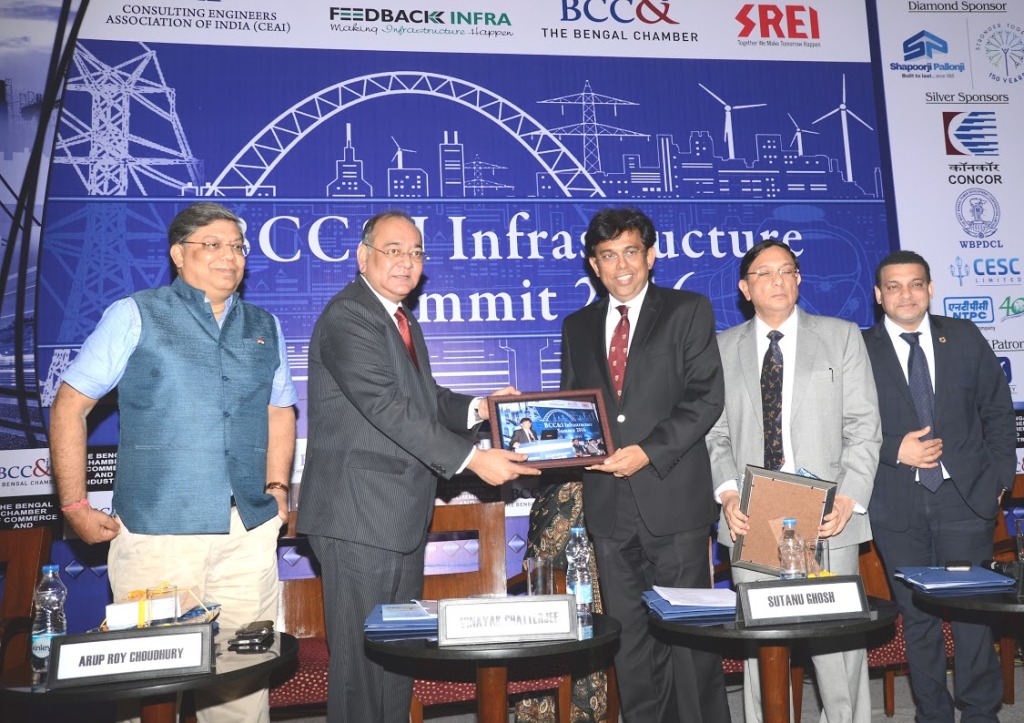Mr. Sutanu Ghosh (President, BCC&I), Mr. Vinayak Chatterjee (CMD, Feedback Infra Pvt. Ltd.), Shri Rohit K Singh (Joint Secretary, Ministry of Road Transport & Highways, Govt. of India), Dr. Arup Roy Choudhury (Former CMD, NTPC), Mr. Dhruv Bhalla (Head – International Business, Srei Infrastructure Finance Ltd.) were present among others.




Shri Suresh Prabhakar Prabhu (Hon’ble Minister, Ministry of Railways, Govt. of India) attended the summit through video conference.
“This is the inaugural edition of our annual Summit, and the principal objective is to create an effective platform in the Eastern region of India for all infrastructure stakeholders to discuss, analyze, share best practices and bring forward the opportunities in infrastructure and related logistics sectors, especially the cutting-edge developments of today. Today, we would like to stress upon infrastructure-related business development discussions, that brings the Government together with private Infrastructure players, corporates and consultants”, said, Mr. Sutanu Ghosh, President, BCC&I. He also added, “As many States are already stressed about their Fund, the cash flow becomes the crucial problem for building infrastructure. Acquiring land is a problem, implementation such as removal of people is again a problem but indeed a great amount of work has already been done. There is a serious demand for private sector investment and that is seriously lacking as the level of private investment is far below the growing need.”
Shri Suresh Prabhakar Prabhu (Hon’ble Minister, Ministry of Railways, Govt. of India) said, “Within a few years, the future of the Railway Stations in India will be much better than the infrastructure and all other facilities available at the airports. The Surat Railway Station model can be stated as an example. We have planned to develop 400 such railway stations all-over India, keeping in mind the local culture of different parts of India. The the stations will have Railway City Bus Services and other mode of transports, which is a joint-venture with the state governments. We are now shifting to 100% e-tendering and PayPal process. All of these are under the umbrella of ‘Make In India’ project and we are also planning to sell the manufactured products and equipments used for building railway tracks, to other countries once we are ready.”

Despite efforts taken by the government, investment momentum is yet to pick up and as a result, order inflows are devoid of large investments. There is still capacity under-utilisation and, therefore, no investments are coming in capacity addition. Players are waiting for demand momentum to go up. In this scenario it is interesting to understand what would be the view of the prime stakeholders and how cost efficiency and technology would be key instruments to tackle this problem.
Shri Rohit K Singh (Joint Secretary, Ministry of Road Transport & Highways, Govt. of India) said, “There are various business models like PPP, BOT, etc. But the Govt. of India is now following the Asset Recycling Model, wherein, we have assigned 75 projects to different private companies for a lease of 30 years against an advanced sum of money. These private organisations are now taking care of the development of the roads and highways that has been allocated to them. And it is very useful since it has given a profit of Rs. 50,000 crore to the government.”
